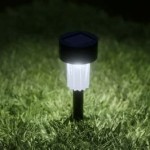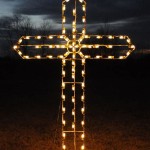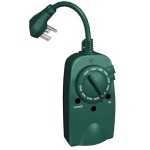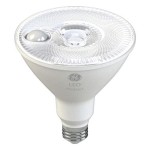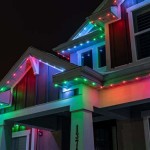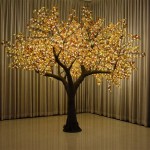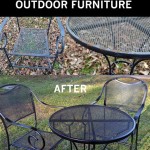Outdoor Pool Deck Lighting Requirements
Safety and ambiance are paramount when designing outdoor pool deck lighting. Careful planning and adherence to specific requirements ensure a secure and enjoyable environment for nighttime swimming and entertaining. Proper lighting minimizes hazards while enhancing the aesthetic appeal of the pool area.
Key Considerations for Outdoor Pool Deck Lighting
Several factors influence the selection and placement of pool deck lighting. Understanding these considerations helps create a well-lit and safe environment:
- Safety: Adequate illumination prevents accidents by ensuring clear visibility around the pool's edge and surrounding areas.
- Code Compliance: Adhering to local electrical codes and safety standards is crucial for safe and legal installations.
- Aesthetics: Lighting should complement the overall landscape design and create a welcoming atmosphere.
- Energy Efficiency: Selecting energy-efficient lighting options reduces operating costs and environmental impact.
- Durability: Outdoor lighting fixtures must withstand exposure to moisture, chemicals, and temperature fluctuations.
Types of Outdoor Pool Deck Lighting
Various lighting options cater to diverse needs and preferences. Each type offers unique advantages:
- In-Ground Lights: These fixtures are embedded in the pool deck or surrounding landscape, providing subtle illumination and pathway marking.
- Post Lights: Taller fixtures mounted on posts offer broader illumination for larger areas and walkways.
- String Lights: These decorative lights create a festive ambiance and can be strung along fences or overhead.
- Wall-Mounted Lights: Fixtures attached to walls near the pool area provide focused light for specific zones.
- Underwater Lights: Submerged fixtures enhance the pool's visual appeal and improve visibility for nighttime swimming.
- Landscape Lighting: Strategically placed spotlights or floodlights can highlight trees, shrubs, and other landscape features.
Lighting Placement and Spacing
Strategic placement maximizes effectiveness and safety. Careful consideration should be given to the following:
- Perimeter Lighting: Illuminating the pool's edge defines boundaries and prevents accidental falls.
- Walkway Lighting: Pathways leading to and from the pool should be well-lit to guide movement and prevent tripping hazards.
- Seating Area Lighting: Provide adequate lighting for seating areas to facilitate safe and comfortable gatherings.
- Glare Reduction: Position fixtures to minimize glare reflecting off the water's surface or into surrounding areas.
Electrical Safety and Code Compliance
Electrical safety is paramount in wet environments. Compliance with relevant codes ensures proper installation:
- GFCI Protection: Ground fault circuit interrupters (GFCIs) are essential for protecting against electrical shocks in damp locations.
- Low-Voltage Lighting: Low-voltage systems (12 volts or less) offer increased safety around water.
- Proper Wiring: All wiring must be properly insulated and protected from moisture and damage.
- Qualified Electrician: It's crucial to hire a qualified electrician to install and inspect all electrical components.
Energy Efficiency and Sustainability
Energy-efficient lighting reduces operating costs and environmental impact. Consider these options:
- LED Lighting: Light-emitting diode (LED) lights consume significantly less energy than traditional incandescent or halogen bulbs.
- Solar Lighting: Solar-powered lights utilize renewable energy and reduce reliance on the electrical grid.
- Timers and Sensors: Automated timers and motion sensors can further reduce energy consumption by activating lights only when needed.
Maintenance and Care
Regular maintenance ensures optimal performance and longevity:
- Cleaning Fixtures: Periodically clean light fixtures to remove dirt, debris, and insects that can obstruct light output.
- Bulb Replacement: Promptly replace burned-out bulbs to maintain adequate illumination.
- Corrosion Prevention: Regularly inspect fixtures for signs of corrosion and take appropriate measures to prevent further damage.
- Professional Inspections: Periodic inspections by a qualified electrician can identify potential issues before they become major problems.
Dark Sky Compliance
Minimizing light pollution benefits the environment and preserves the night sky. Consider these measures:
- Shielded Fixtures: Use fixtures that direct light downwards, reducing upward light spill.
- Low-Intensity Lighting: Opt for lower-intensity lighting where feasible to minimize light pollution.
- Warm Color Temperature: Choose warmer color temperatures (2700K-3000K) to reduce the impact on nocturnal wildlife.

What Ip Rating Do I Need For Outdoor Lights And Why It Matters Moonlight Design

Making Plans For Stunning Outdoor Lighting Around Your Pool Decorating Elves

10 Pool Deck Lighting Ideas Wireless Led Low Voltage Modern

Pool And Deck Lighting Ideas Deking Decks Brisbane

Swimming Pool Lighting Ideas For Your Backyard Renovation

Swimming Pool Lighting Ideas Landscaping Network

Pool Lighting Outdoor Perspectives Of St Louis

Pool Landscaping Lights Innovative Light Designs

Pool Lighting Ideas To Increase Safety

Tips For Selecting The Best Lighting Your Swimming Pool Natural Pools
